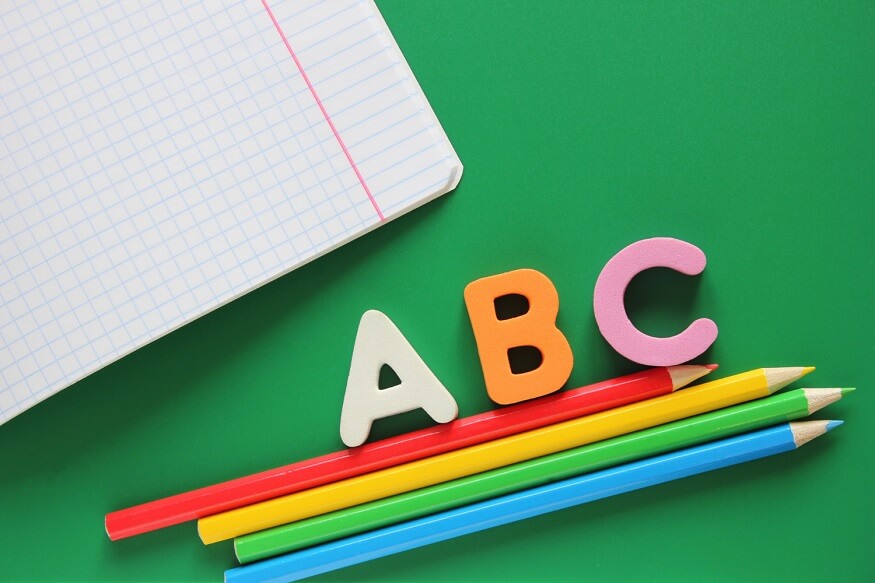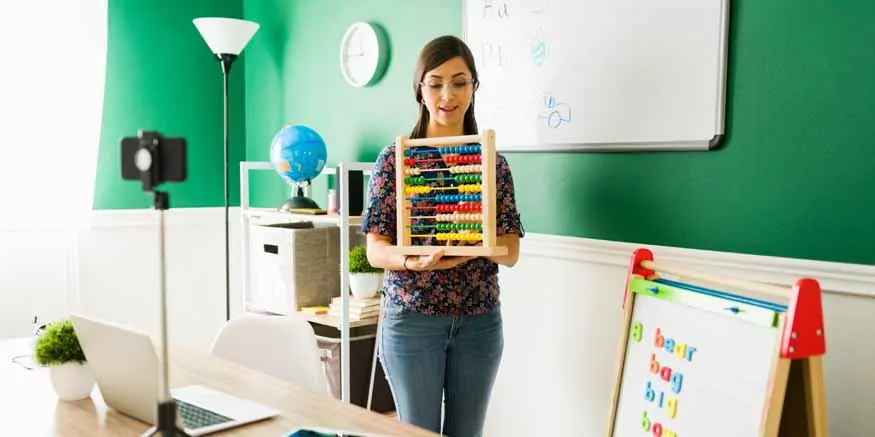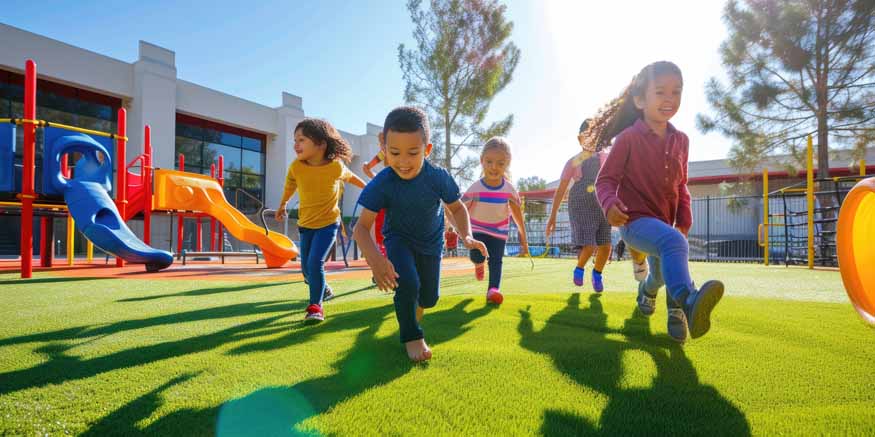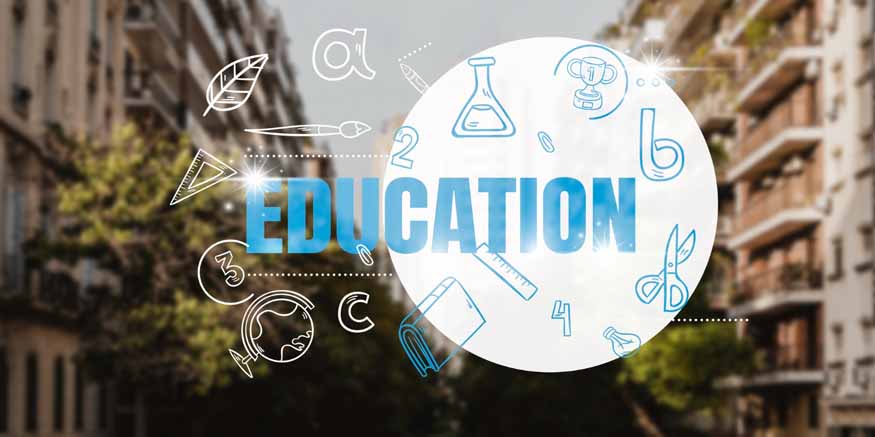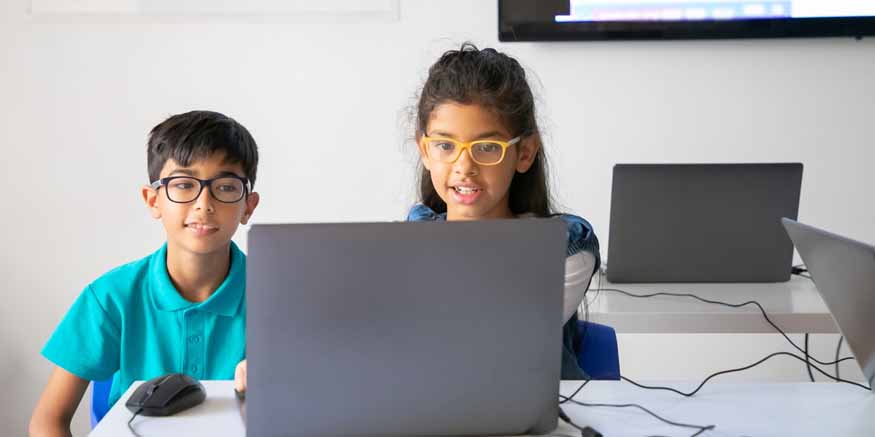Kindergarten serves as a crucial foundation for children’s literacy development. During this pivotal stage, young learners embark on an exciting journey of exploring letters and sounds, laying the groundwork for reading and writing. Alphabet recognition will delve into the importance of early literacy skills in kindergarten and how parents and educators can support children in their literacy journey. By understanding the significance of letter recognition, phonics, and fostering a love for reading, we can empower our children to become confident and enthusiastic readers. Let’s embark on this adventure of nurturing early literacy skills together!
Also Read: Benefits of Cursive Writing in Early Years
Fun ways to teach letter recognition
The Power of Letter Recognition: Kindergarten is the perfect time for children to familiarize themselves with letters. Letter recognition forms the building blocks for reading and writing. By exposing children to letters through engaging activities such as alphabet games, letter puzzles, and interactive books, we can help them develop a solid foundation. Encouraging children to identify letters in their environment, like on signs or labels, further reinforces their learning. As parents and educators, we can make letter recognition activities fun and enjoyable, transforming them into an exciting treasure hunt for knowledge.
Unlocking the World of Phonics: The relationship between letters and sounds, is a fundamental aspect of early literacy. Teaching children the sounds of individual letters and their combinations empowers them to decode words and improve their reading abilities. Incorporating phonics activities, such as rhyming games, sound blending exercises, and word families, help children grasp the connection between letters and sounds. By utilising interactive online resources or phonics-based apps, parents and educators can create a dynamic learning environment that captivates children’s attention and enhances their phonics skills.
Cultivating a Love for Reading: Instilling a love for reading in kindergarten sets the stage for a lifelong passion for books. By creating a literacy-rich environment filled with a diverse range of age-appropriate books, children can explore different genres and discover their interests. Reading aloud to children, discussing stories, and asking open-ended questions spark their imagination and promote critical thinking skills. Additionally, regular visits to the library or bookstore expose children to the joy of selecting their own books, fostering a sense of ownership and independence in their reading choices.
Partnering with Parents and Educators: Effective collaboration between parents and educators is key to supporting children’s early literacy development. Establishing open lines of communication ensures a consistent approach. Regular communication between home and school allows for a cohesive approach to supporting children’s progress. Parents can share insights into their child’s interests and learning styles, enabling educators to tailor instruction accordingly. Likewise, educators can provide guidance and resources for parents to continue literacy activities at home.
Integrating Literacy Across the Curriculum: In kindergarten, literacy skills should not be confined to language arts alone. Integrating literacy across various subjects expands children’s understanding and engagement. Science experiments that involve reading and following instructions, math activities that incorporate word problems, and social studies projects that require researching and presenting information all contribute to the development of well-rounded literacy skills. By intertwining literacy with other disciplines, children gain a deeper appreciation for the importance of reading and writing in their everyday lives.
Also Read: 15 Importance of Reading Skills and Benefits
Supporting Individual Learning Needs: Every child has unique learning needs and abilities. Recognising and addressing these differences is crucial to fostering early literacy skills. Differentiated instruction allows educators to tailor their teaching methods to accommodate diverse learners. Providing additional support for struggling readers, offering enrichment opportunities for advanced learners, and utilizing assistive technologies for children with specific learning challenges are all effective ways to ensure that each child receives the necessary support to thrive in their literacy journey.
Celebrating Progress and Milestones: Acknowledging and celebrating children’s achievements is essential for building their confidence and motivation. Recognising their progress, whether it’s mastering a new letter sound or reading their first book independently, boosts their self-esteem and encourages a positive attitude towards learning. Celebratory activities like award ceremonies, reading parties, or creating a classroom literacy wall showcasing children’s accomplishments serve as reminders of their growth and inspire them to continue exploring and expanding their literacy skills.
Engaging Literacy Activities for Kindergarteners: Engaging in literacy activities play a vital role in enhancing children’s early literacy skills. Activities such as word building using letter tiles, sight word scavenger hunts, creating alphabet crafts, and storytelling sessions stimulate children’s imagination and enthusiasm for reading and writing. Incorporating technology, such as interactive educational apps or digital storytelling platforms, can also provide interactive and engaging experiences. By offering a variety of hands-on and technology-based activities, we can cater to different learning styles and keep children motivated and eager to explore the world of literacy.
The Role of Play in Literacy Development: Play is a natural and effective way for young children to learn and develop essential skills. When it comes to literacy, play can be integrated to enhance alphabet recognition, phonics, and language skills. Setting up literacy-themed play centres, such as a pretend library or a writing corner, allows children to immerse themselves in literacy-related play experiences. Role-playing as characters from favourite books, engaging in dramatic play, or participating in shared storytelling activities can ignite their creativity and language development. By recognising the value of play, we can create a joyful and meaningful literacy learning environment for kindergarteners.
Sustaining the Love for Literacy at Home: Nurturing early literacy skills should extend beyond the classroom. Parents play a vital role in supporting and reinforcing what children learn in kindergarten. Creating a literacy-rich home environment involves setting up a cosy reading nook, having a variety of age-appropriate books accessible, and engaging in read-aloud sessions as a family. Encouraging daily reading habits, discussing stories, and involving children in everyday literacy activities, such as writing grocery lists or making up stories, foster a lifelong love for reading and writing. By making literacy an integral part of family life, parents can strengthen their child’s literacy skills and instill a genuine passion for lifelong learning.
Also Read: Effective Ways to Build Pre-Reading Skills in Kids
Conclusion
In the journey of developing early literacy skills in kindergarten, a holistic approach encompassing engaging activities, play, home support, and celebration of achievements is crucial. By providing a range of literacy experiences, incorporating play-based learning, and involving parents as partners, we can lay a strong foundation for children’s literacy development. Let’s continue to ignite their curiosity, nurture their love for reading and writing, and empower them to become lifelong learners. Together, we can shape a future where every kindergartener embraces the power of literacy.
Euroschool recognizes the importance of early literacy skills in kindergarten. Our dedicated educators focus on exploring letters and sound to lay a strong foundation for reading and writing. Through fun ways to teach letter recognition, interactive activities, engaging phonics instruction, and a literature-rich environment, we nurture a love for literacy in our young learners. We believe in partnering with parents to create a supportive learning community where children can thrive. At Euroschool, we celebrate each milestone and empower our kindergarteners to become confident and enthusiastic readers. Join us in this exciting journey of nurturing early literacy skills and unlocking the joy of learning.

